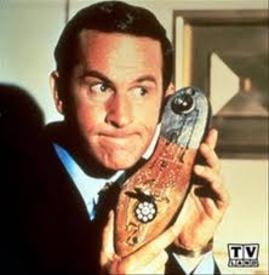All calories are not the same

choppedupcoconut
Posts: 5 Member
This is an argument I have quite often with people.
All calories are not the same. 250 calories from a slice of pizza is not the same as 250 calories from a meal consisting of grilled chicken breast, a side of quinoa and fresh raw spinach.
If you agree or disagree, please post in the in the comment section below
All calories are not the same. 250 calories from a slice of pizza is not the same as 250 calories from a meal consisting of grilled chicken breast, a side of quinoa and fresh raw spinach.
If you agree or disagree, please post in the in the comment section below
0
Replies
-
-
Please explain how 250 calories isn't the same as 250 calories.0
-
Oh look, it is this thread AGAIN.
lol ... yep.
Disagree.
Perhaps the OP is invoking the position of the people he/she debates with for response.0 -
250 calories is 250 calories regardless of the source.0
-
I believe calories are calories regardless of where they come from.
HOWEVER, where those calories come from also depends on how your body uses them and what your body can take from it!
For example, frozen or takeaway pizza is not going to have as many (if any!) positive vitamins & minerals as a pizza you made yourself with fresh ingredients (tomatoes, mushrooms, basil, spinach, chicken etc.)...just my opinion, I'm no expert 0
0 -
What exactly do you mean by "not the same"?
I think this is a sort of false argument because everyone would agree different foods have different nutritional value but a calorie is just a unit of energy, there aren't really different kinds of units of energy.0 -
A calorie is a calorie is a calorie. The 250 calories from a slice of pizza provide just as much energy as 250 calories from chicken/quinoa/spinach.
The only difference is the *nutrition* value of the two foods (and the volume, since 250 calories from pizza isn't likely to be a filling meal).
Remember, a calorie is a scientific unit of measurement, and nothing more.0 -
 0
0 -
Interesting read, take out of it what you will. Personally for me all calories are the same based on what i eat.
One dogma that has contributed to the ever-worsening health of the Western world is the belief that “a calorie is a calorie.” This simply isn’t true. The idea that obesity is the end result of eating too much and exercising too little; i.e. consuming more calories than you’re expending, is also false.
Fructose is 'isocaloric but not isometabolic." This means you can have the same amount of calories from fructose or glucose, fructose and protein, or fructose and fat, but the metabolic effect will be entirely different despite the identical calorie count.
Eight primary diseases related to metabolic dysfunction include type 2 diabetes, hypertension, lipid problems, heart disease, non-alcoholic fatty liver disease, polysystic ovarian syndrome, cancer, and dementia. Obesity is a marker for all of them, and these eight diseases account for a staggering 75 percent of the healthcare costs in the US.
20 percent of obese people have perfectly normal metabolic functioning, and the excess weight will not affect their overall lifespan. However, the MAJORITY of obese people—about 80 percent of them—do not have normal metabolic function, and 40 percent of normal-weight people also suffer from metabolic dysfunction, and are therefore prone to these obesity-related diseases. All in all, metabolic dysfunction affects a clear majority of Americans, and the faulty dogmatic belief that all calories are the same has contributed to the rise in metabolic dysfunction0 -
I think OP probably meant nutritional value's different. But a calorie is a calorie.0
-
Calories are calories. You may get more nutrition from different things but they add up the same. That's why if you keep track of the calories you will still lose weight and you don't have to be come a vegetarian unless that is what you choose.0
-
You say pizza's not the same as chicken, but you don't explain why. If you want to be taken seriously you need to learn how to argue like an adult, and not just insist "because it just is". Sources and citations, please.0
-
I think OP probably meant nutritional value's different. But a calorie is a calorie.
The concept that the nutritional value of different food is different hardly seems worth starting a thread over. I keep holding out for some kind of brilliant (or at least interesting) argument on this point but it's probably in the camp of the old "muscle weighs more than fat" debate. Semantics.0 -
This is an argument I have quite often with people.
All calories are not the same. 250 calories from a slice of pizza is not the same as 250 calories from a meal consisting of grilled chicken breast, a side of quinoa and fresh raw spinach.
If you agree or disagree, please post in the in the comment section below
I get what you are saying.. and I agree. For me.. and maybe for me only... if I eat 250 calories of potato chips early in the afternoon
vs.
2 egg whites, salad with olive oil, 2 oz of chicken I will personally will feel a lot better.
If this was just for one day...
From a calories in / calories out perspective - it wouldn't matter. But, if this was for 300 days in a row and everything else was equal - I think , this is just me, I would feel better in the long run. Yes, a "calorie is a calorie" but a varied, balanced, diet is important IMHO.
Scurvy was not some "PR Trick" invented by the English in the 18th century LOL!0 -
Fundamentally, calories are calories. It's just a unit of energy.
But the nutrition that comes in different foods will heavily affect how you feel (and how easy/hard you can stick to your diet). Eating 2000 calories of low calorie/high volume foods (lean meats, vegetables, whole grains, etc) will generally leave you feeling fuller for longer and healthier. Eating 2000 calories of high calorie/low volume junk food (cookies, fast food, etc) will generally leave you feeling hungrier and feeling ****ty.
As far as weight loss goes, calories in<calories out. Exercise and/or a low calorie diet (regardless of what makes up those calories). As far as healthy weight loss and fitness goes, still calories in<calories out and exercise/low calorie diet, but a nutritious low cal diet is key.0 -
No. Changed my mind! Post deleted!0
-
OP... I think you mean the calories are the same, but the vitamins and nutrients are different.0
-
Eating 2000 calories of low calorie/high volume foods (lean meats, vegetables, whole grains, etc) will generally leave you feeling fuller for longer and healthier. Eating 2000 calories of high calorie/low volume junk food (cookies, fast food, etc) will generally leave you feeling hungrier and feeling ****ty.
^^ This I definitely agree!0 -
I like pizza.0
-
Sometimes I have spinach or chicken on my pizza.0
-
You're right. Quinoa is nasty, pizza is not. Therefore, they are not the same.0
-
This topic. AGAIN.
ARE we comparing calories, or are we comparing something else. PLease oh please be specific so we aren't all spinning our wheels.
Calorie wise, calories are calories.
A calorie is a form of measurement. One unit of measurement is sames a one unit of measurement.
Or are you measuring/comparing NUTRITIONAL VALUES ???
If that's the case, let's call it what is, and please change your topic to:
All NUTRITIONAL VALUES ARE NOT THE SAME.0 -
:yawn:0
-
You're right. Quinoa is nasty, pizza is not. Therefore, they are not the same.
lol.0 -
Did someone say pizza? I'll take mine with bacon on it.
 0
0 -
This doesn't surprise me, majority of you use chemical substances such as aspartame ad sucralose as an alternative to sugar, because someone, somewhere told you it's completely healthy and natural.
Anyways, I dare any of you to consume 1200 calories of pizza a day for a month and monitor your results.
Now the next month eat 1200 calories of whole natural foods, preferably raw, organic fruits and vegetables. including raw nuts. and no, peanuts are not nuts. Now if you yield the same results with both diets I would be amazed, and it's simply would not happen. The fact is, at the end of the day, your body stores away fat in a means of protecting you. It's not going to store away the vegetables because it doesn't contain any fat, your body wants to store fat in case you suddenly don't have food anymore.
Pizza is a completely man made food, your body wasn't even designed to even digest man made foods . The body thrives on natural foods.0 -
http://home.trainingpeaks.com/articles/nutrition/a-calorie-is-not-a-calorie.aspx
Here's a link I just found, there's plenty more0 -
This doesn't surprise me, majority of you use chemical substances such as aspartame ad sucralose as an alternative to sugar, because someone, somewhere told you it's completely healthy and natural.
Anyways, I dare any of you to consume 1200 calories of pizza a day for a month and monitor your results.
Now the next month eat 1200 calories of whole natural foods, preferably raw, organic fruits and vegetables. including raw nuts. and no, peanuts are not nuts. Now if you yield the same results with both diets I would be amazed, and it's simply would not happen. The fact is, at the end of the day, your body stores away fat in a means of protecting you. It's not going to store away the vegetables because it doesn't contain any fat, your body wants to store fat in case you suddenly don't have food anymore.
Pizza is a completely man made food, your body wasn't even designed to even digest man made foods . The body thrives on natural foods.
My body thrives on pizza, cheeseburgers and icecream. Moderation not elimination.0 -
And I bet you don't use chemical substances such as aspartame and sucralose because someone, somewhere told you it's not completely healthy.This doesn't surprise me, majority of you use chemical substances such as aspartame ad sucralose as an alternative to sugar, because someone, somewhere told you it's completely healthy and natural.0 -
This doesn't surprise me, majority of you use chemical substances such as aspartame ad sucralose as an alternative to sugar, because someone, somewhere told you it's completely healthy and natural.
Anyways, I dare any of you to consume 1200 calories of pizza a day for a month and monitor your results.
Now the next month eat 1200 calories of whole natural foods, preferably raw, organic fruits and vegetables. including raw nuts. and no, peanuts are not nuts. Now if you yield the same results with both diets I would be amazed, and it's simply would not happen. The fact is, at the end of the day, your body stores away fat in a means of protecting you. It's not going to store away the vegetables because it doesn't contain any fat, your body wants to store fat in case you suddenly don't have food anymore.
Pizza is a completely man made food, your body wasn't even designed to even digest man made foods . The body thrives on natural foods.
Thanks for the entertainment. Best of luck to you.0
This discussion has been closed.
Categories
- All Categories
- 1.4M Health, Wellness and Goals
- 398.2K Introduce Yourself
- 44.7K Getting Started
- 261K Health and Weight Loss
- 176.4K Food and Nutrition
- 47.7K Recipes
- 233K Fitness and Exercise
- 462 Sleep, Mindfulness and Overall Wellness
- 6.5K Goal: Maintaining Weight
- 8.7K Goal: Gaining Weight and Body Building
- 153.5K Motivation and Support
- 8.4K Challenges
- 1.4K Debate Club
- 96.5K Chit-Chat
- 2.6K Fun and Games
- 4.8K MyFitnessPal Information
- 12 News and Announcements
- 21 MyFitnessPal Academy
- 1.5K Feature Suggestions and Ideas
- 3.2K MyFitnessPal Tech Support Questions


















